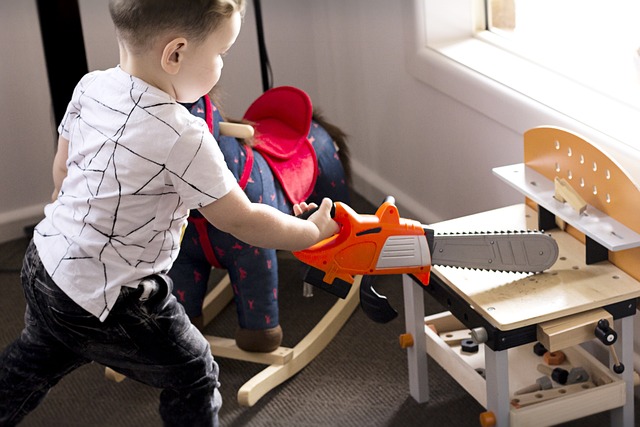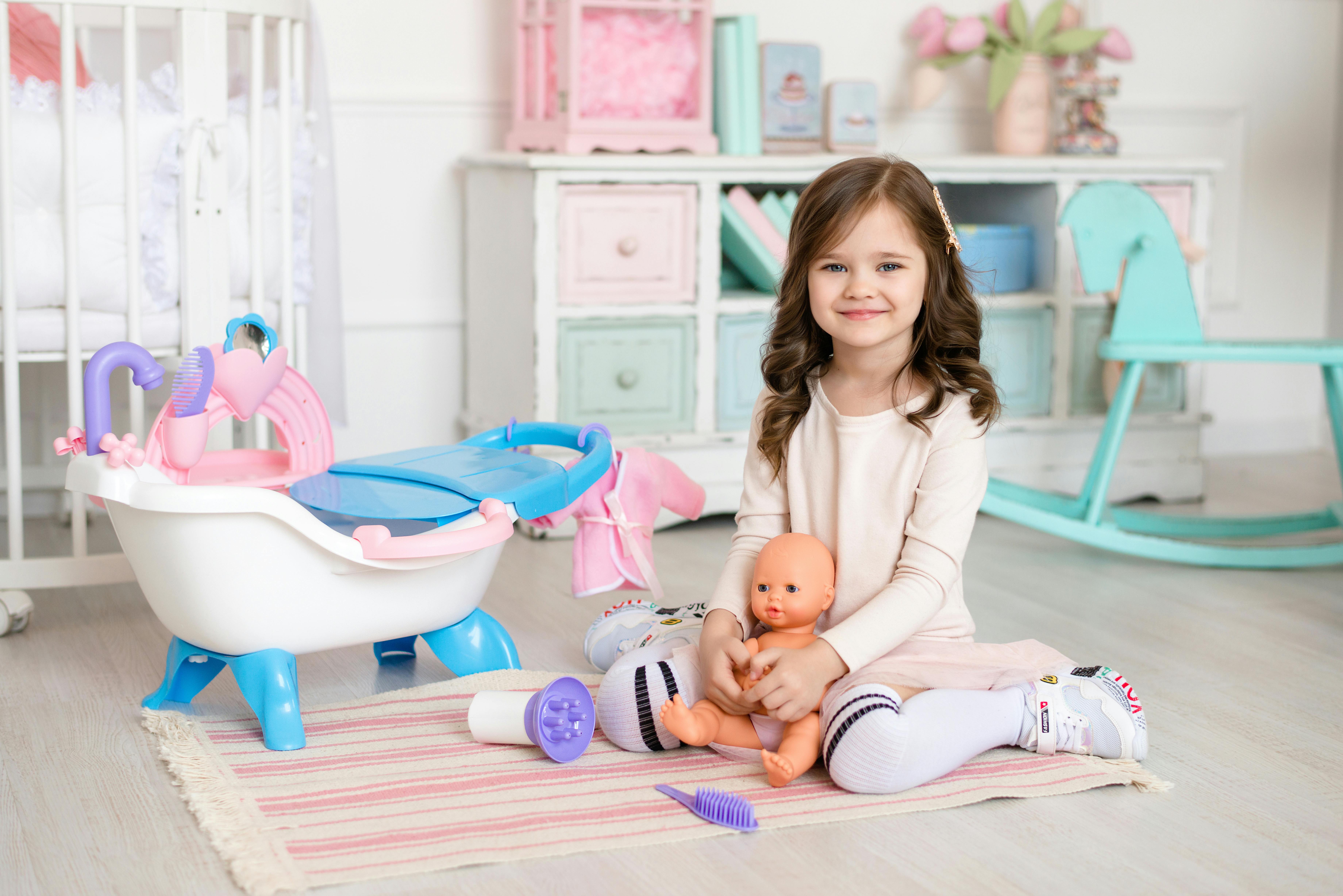Login
Join Free
Playing House: A Vital Game for Children's Development
Playing house is a game that is loved by children and exists in any country and culture. Children usually start to imagine and play roles when they are two years old. Playing house games are more common among children aged 2-6. This kind of game is called symbolic game in psychology, also known as pretend game.
Parents should never underestimate "playing house". An educator once said: "Children's knowledge is gained from experience, and children's life itself is a game." Pretend games are by no means simple activities, but an indispensable part of children's growth.
Benefits of Playing House
1. Enrich imagination
Children have not been exposed to society too much. When arranging scenes for games, they will not consider whether they are reasonable or not, but will only imagine wildly. Playing house games can allow children to fully use their imagination. Through the simulation of various scenes, their imagination will become richer and richer.
2. Promote Reading and Writing Skills
Five or six years old is the golden period for children to improve their reading and writing skills. Imaginary games can allow children to come into contact with many uncommon objects and nouns in daily life during the simulation process, such as "police car", "blood pressure measurement", "experimentation", etc. These unfamiliar nouns will stimulate children's interest and make them always want to find out, so as to learn more new knowledge.
3. Strengthen Language Skills
During the game, parents can actively guide their children to speak, starting with vocabulary and short sentences, and gradually practicing repeatedly. Children will learn more vocabulary and sentences without pressure during the game, and slowly strengthen their language skills.
4. Enhance Cognitive Skills
Parents can give children more simulation options for game scenarios, such as police stations, hospitals, libraries, museums, etc. During the simulation game, parents can take the opportunity to teach children more life knowledge, such as the hospital logo, there are nurses and doctors in the hospital, they are angels in white, you should find them when you are sick, you can't speak loudly in the library, etc., and some common sense of life, such as fire alarms, emergency telephones, etc., so that children can have an understanding of these knowledge that they can't usually touch but are very useful.
5. Foster Parent-Child Bonding
Children are highly dependent on their parents. In their eyes, parents are the representatives of safety and reliability. In the game, parents and children need to work together to complete various tasks. In the game interaction, not only the intimacy is enhanced, but also the children's hands-on ability and game experience are enhanced, thus promoting the parent-child relationship.
"Playing house" imaginary games have many benefits. It is not just a childish and boring children's game, but also a process of children's cognition of the world and feedback on the world in their eyes.

Key Considerations for Playing House
1. Start Early: The earlier you start, the better. Some children will pretend to feed others or pretend to make phone calls when they are 14 months old. At this time, parents can play simple "playing house" games with their children and demonstrate to them, such as pretending to drink water from an empty cup. Take this opportunity to guide children to learn some basic life skills.
2. Allow Freedom: The fewer restrictions, the better. When playing "playing house" games with children, parents should put down their status, participate fully, give children an atmosphere of free leadership and control, and seriously "play" the role assigned to them by their children. Children can play better only when there are not too many restrictions.
3. Engage Actively: More interaction and more questions. When playing "house-playing" games with children, parents should use vivid expressions and body movements to interpret the roles in the game, and the more questions the better. By asking questions, children's thinking and problem-solving abilities can be promoted. For example, when a child pretends to cook a dish and brings it to you, you pretend to be scalded and then ask: "Oh, it's so hot, what should I do if I can't hold it steady?" At this time, the child will think about how to solve this problem.
4. Include All Genders: Boys can also participate. For a long time, many parents have strong gender biases in the process of educating their children. For example, boys should play with toy guns and trains, and girls should play with dolls and "house-playing". In fact, children's preferences should not be determined by parents, and they should be allowed to cultivate their interests and hobbies freely. "House-playing" games are gender-neutral, and both boys and girls can benefit from this process.
5. Transition to Real Experiences: Experience the real society after going to elementary school. Generally speaking, "house-playing" games are often played by children aged 2 to 6. If children are still often involved in them after entering elementary school, then you should pay attention to their social interaction skills. For children entering this stage, parents should guide them to experience real social practice instead of immersing them in a virtual environment for a long time.

A Perfect Toy for Playing House: Little Actress Toys
When it comes to fostering creativity and encouraging imaginative play, Little Actress Toys stands out as a top choice for parents and educators. Specializing in high-quality pretend play sets, Little Actress Toys offers a wide range of products tailored to children's interests and developmental needs. From kitchen sets and doctor kits to miniature household appliances, each toy is meticulously designed to simulate real-life scenarios, helping children immerse themselves in creative role-playing activities.
These toys not only captivate children with their vibrant designs and interactive features but also promote essential life skills such as problem-solving, collaboration, and social interaction. Whether it's a child pretending to cook a meal or taking on the role of a caring doctor, Little Actress Toys inspires kids to explore, imagine, and learn through play.
Zhorya is proud to collaborate with trusted manufacturers like Little Actress Toys to deliver engaging and innovative toys that support early childhood development. As a wholesale supplier, Zhorya ensures that these thoughtfully designed products are available to schools, daycare centers, and toy retailers. Visit Zhorya to discover the full range of Little Actress Toys and elevate the playtime experience for children everywhere.


 Русский язык
Русский язык 中文
中文